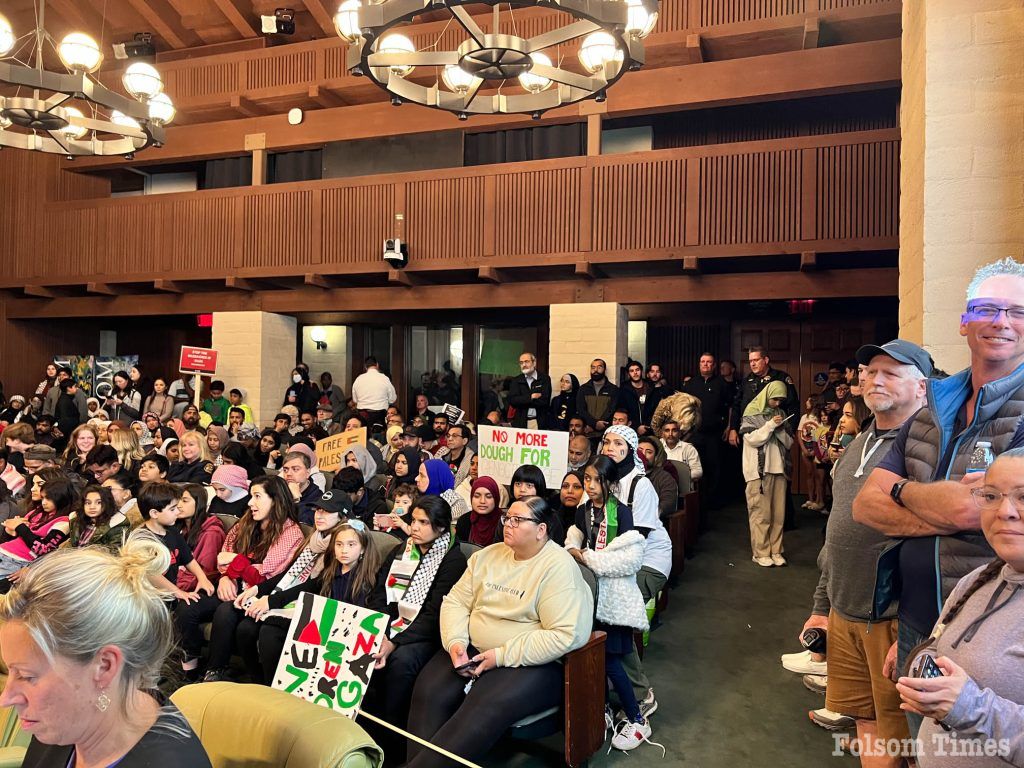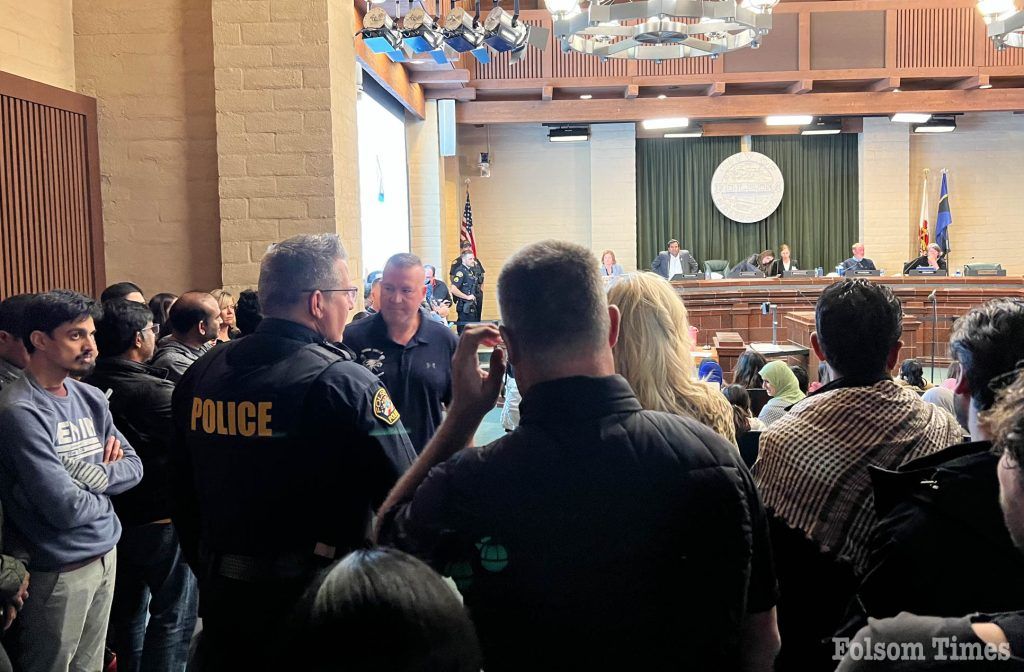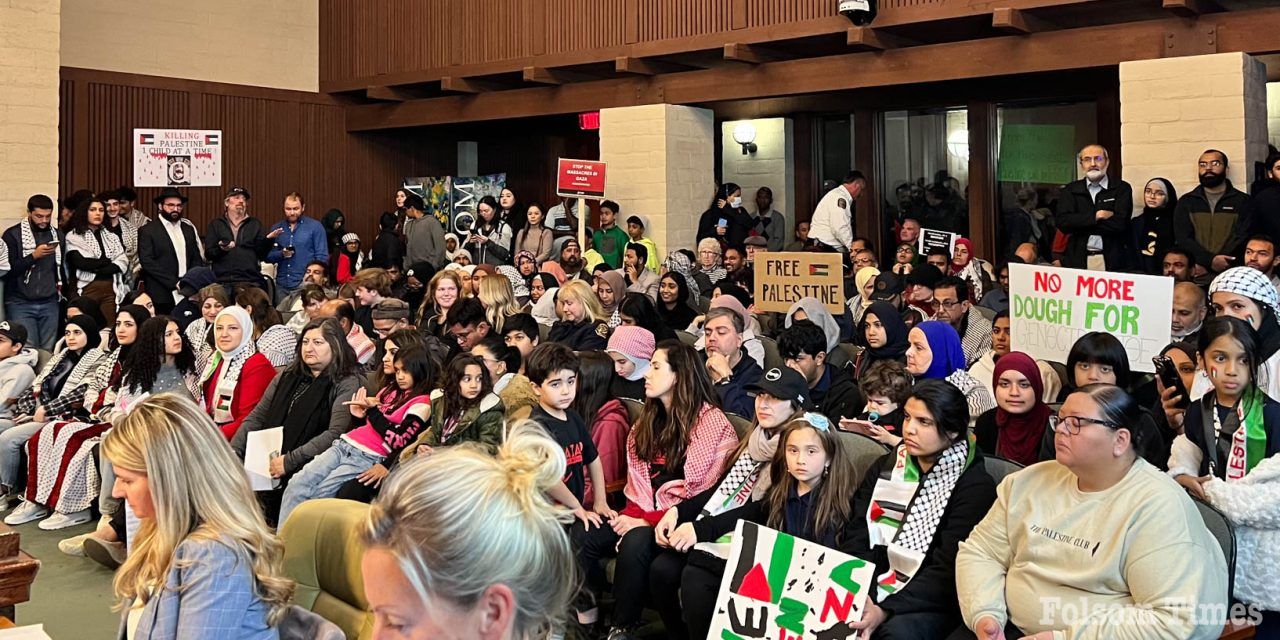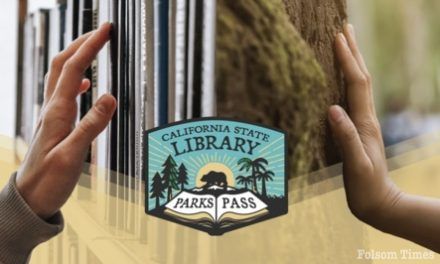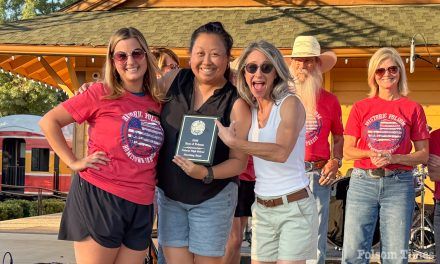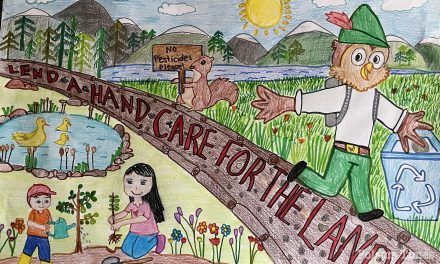As more Palestinian civilians are killed in the war, officials are facing tough questions about how well they’re representing California’s Palestinian community. The state now says it hopes to send aid to Gaza this week, and Gov. Newsom plans to meet soon with Arab and Muslim leaders.
In the aftermath of the brutal Hamas attack in Israel on Oct. 7, in which 1,200 people were killed and more than 200 taken hostage, California officials swooped into action.
Gov. Gavin Newsom booked a last-minute flight to Israel on his way to China because, his team said, California is home to the largest Arab American population and the second-largest Jewish community in the U.S. In Israel, he met with government officials and the parents of Hersh Goldberg-Polin, a Californian being held hostage.
But the state’s response hasn’t been entirely even-handed — even as Israel’s escalating retaliation is killing thousands of Palestinian civilians in Gaza.
Newsom did not venture into Gaza to meet Palestinians on his trip. While last month the governor’s office committed to sending humanitarian aid to both regions, relief has only been delivered to Israel — 52 pallets of surplus medical and emergency supplies on Nov. 7.
The state blames the political situation for why aid has not made it yet into Gaza, where, according to the United Nations relief arm, residents lack access to food, clean drinking water and fuel for electricity. Israel, along with Egypt, has long controlled the flow of goods and travel into the 140-square-mile region, which has been under Hamas rule since a military takeover in 2007.
Today the Office of Emergency Services told CalMatters it anticipates that aid could be delivered to Gaza as soon as this week, but that depends on whether and how long the relief corridor remains open — which is more likely if an agreement is reached for at least a temporary pause in fighting. Israel approved a tentative deal today for the release of 50 women and children being held hostage by Hamas, exchanged for 150 Palestinian prisoners over a four-day ceasefire.
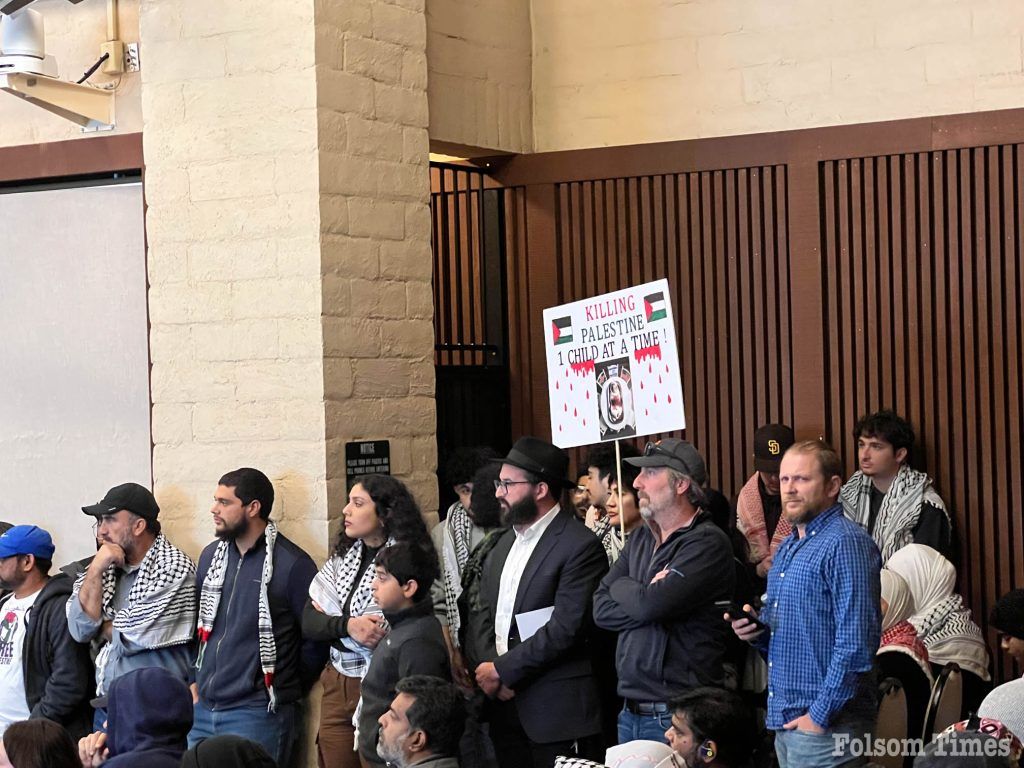
After symbolically ordering the state Capitol dome to display the blue and whitecolors of the Israeli flag on Oct. 9, Newsom met with Jewish community leadersover Zoom on Nov. 7 to discuss efforts to fight antisemitism.
Newsom has not held a similar session with Palestinian community leaders, and has made no public statements addressing the growing calls for a Gaza ceasefire from leaders of other countries and international bodies — and from Californians with relatives in Gaza.
After multiple inquiries from CalMatters, the governor’s office on Monday said it expects to “host a formal convening” with Arab, Middle Eastern, Muslim, and South Asian leaders “in the coming days.”
While the Legislature is out of session, lawmakers on both sides of the aisle issued statements in support of Israel.Assemblymember Evan Low, a Democrat from Cupertino, noted that the Asian American Pacific Islander caucus stands “in unwavering solidarity with Israel ….Always have. Always will.” On Nov. 7, all 18 members of the Legislative Jewish Caucus sent a sternly worded letter to the leaders of the University of California and California State University urging them to “act to counter the wave of antisemitic incidents sweeping their campuses.”
“We’ve been really deeply warmed by the response from our elected officials across the aisle, across both parties,” said David Bocarsly, executive director of the Jewish Public Affairs Committee of California.
He noted that his coalition of Jewish community groups had spent years building relationships with legislators and other communities since forming in 1972. “We’ve seen really strong statements condemning terrorism and supporting Jews and Israelis … And it’s really heartwarming to see so many elected officials show up for us,” he told CalMatters.
While the state’s support of the Jewish community after Oct. 7 is called for, the Palestinian community also deserves attention, say advocacy group leaders and others. They say state elected officials who have decided to step into the fray have done little to represent the needs of Palestinian and Arab constituents.
That imbalance has become even more noticeable as casualties increase in Gaza. An estimated 13,000 civilians have been killed, according to the health ministry, including more than 7,500 women and children, at least 100 humanitarian workers and 53 journalists. The humanitarian crisis in Gaza is also worsening: On Monday, the World Health Organization said that most hospitals are no longer functioning.
Protesters have rallied at the state Capitol and around California for weeks, but the activism flared this past weekend as they forced the state Democratic Party to shut down its Saturday evening convention programs.
“With every breath, with every step, we’ve expressed our disappointment. We’ve expressed our disappointment for the past six weeks,” said Omar Altamimi, policy and advocacy coordinator for the Sacramento and Central Valley chapter of the Council of American-Islamic Relations.
“Today we gather … to say we will not forget. We won’t forget where you stand now, and that’ll impact our decisions a year from now,” he said at a Friday rally at the Capitol. “Muslims across the nation have vowed to not vote for a single elected official who has failed to call for a ceasefire in the past month-and-a-half. And we’ll hold them to account.”
The civilians killed include the relatives of Californians, who say they haven’t received the same kind of public outreach from state leaders as victims of the Oct. 7 attack.
Basim Elkarra, executive director of the same chapter of the Council of American-Islamic Relations, said he has lost at least 65 members of his family in the war, though that number may be higher since they’ve lost contact with their relatives a week ago, he said.
Rajaie Batniji, a doctor at Stanford Medical Center and CEO of a healthcare company, said on social media that 37 members of his family have been killed.
And Luqman Elbakri, a senior at UC Berkeley who also has family in Oakland and Saratoga, said he found out on Oct. 23 that 22 members of his extended family had been killed in an air strike, including six children under the age of 5. They all lived in the same high-rise building, common in Gaza due to the inability to build outward.
“My family name, ‘Elbakri’ no longer exists in the civil registry in Gaza,” he said.
A boiling point
State leaders have little direct influence over foreign policy, but they can exert some pressure on the federal government. While California Republicans are almost uniformly supporting Israel, Democrats are more divided and advocates are focusing on them since they’re in power.
That’s why, on Nov. 7, 50 Democratic Party delegates sent a letter to Newsom, asking him to publicly support the ceasefire resolution introduced by members of Congress, and to “demand that the United States reassert its leadership role as a negotiator in pursuit of a lasting peace.”
Newsom’s office confirmed receipt of the letter, but did not respond to the delegates, according to Fatima Iqbal-Zubair, chairperson of the Democratic Party’s Progressive Caucus.
But at the California Democratic Party convention this past weekend, it was harder to ignore the demands from protesters and delegates.
They loudly cheered Rep. Barbara Lee of Oakland, who has been the most outspoken in calling for a ceasefire among the leading candidates for U.S. Senate. They interrupted speeches by other candidates. And they broke through security into the convention center Saturday, leading the party to cancel the formal events that evening.
The canceled sessions included meetings of the Latino, Black and Native American caucuses, who said they planned to discuss resolutions calling for a ceasefire. But Norma Alcala, chairperson of the Latino Caucus, said she understood why the protesters needed to make their point.
Party Chairperson Rusty Hicks, however, called the protests “completely unacceptable,” while the Legislative Jewish Caucus issued statements condemning what it called “anti-Israel protesters.”
“We fully support the right to protest loudly and vociferously. But storming through security and shutting down a democratic process — particularly with chants calling for the destruction of Israel and appearing to justify the Hamas attack — is completely unacceptable,” the caucus said in a statement.
The protests included chants and signs with slogans — specifically “from the river to the sea” — that many in the Jewish community view as antisemitic and calling for the annihilation of Israel, though a 2020 declaration signed by hundreds of scholars on antisemitism disputes that interpretation.
